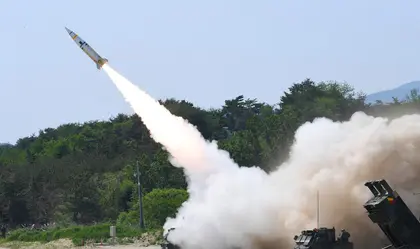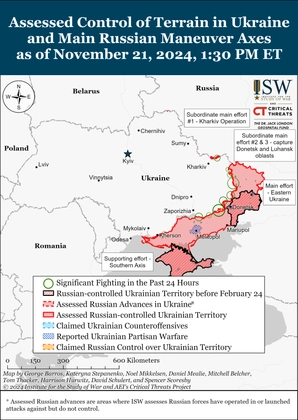The Kremlin said Monday that the Ukraine grain deal had "de facto ended" hours before it was due to expire, and that Moscow would return to the landmark agreement if its conditions were met.
JOIN US ON TELEGRAM
Follow our coverage of the war on the @Kyivpost_official.
The crucial deal, brokered by the UN and Turkey, was officially due to run out at the end of Monday. It allows Ukraine to export grain via the Black Sea.
Moscow has threatened to leave the deal for weeks, saying its side of the agreement was not properly implemented.
"The Black Sea agreements have de facto ended today," Kremlin spokesman Dmitry Peskov said.
"The grain deal has ceased. As soon as the Russian part (of the agreements) are fulfilled, the Russian side will immediately return to the grain deal."
After the Kremlin's announcement, Russian news agencies reported Moscow had notified Turkey, Ukraine and the UN that it was against extending the deal.
"Russia today officially notified the Turkish and Ukrainian sides, as well as the UN Secretariat of its objection to the extension of the deal," the TASS news agency quoted foreign ministry spokeswoman Maria Zakharova as saying.
President Volodymyr Zelensky said later on Monday that Ukraine is prepared to continue grain exports.
"Even without the Russian Federation, everything must be done so that we can use this Black Sea corridor. We are not afraid. We have been approached by companies that own ships. They said that they are ready" to continue shipments, Zelensky said in comments distributed on social media by his spokesman Sergiy Nykyforov.

Eurotopics: Ukraine Hits Russian Target with US Missiles
The Kremlin's announcement that Moscow intended to leave the deal came hours after a Ukrainian attack on Russia's bridge to annexed Crimea killed two civilians.
But Peskov said Moscow letting the deal expire was not "linked" to the attack, saying President Vladimir Putin had long voiced his discontent with the agreements.
"Before this attack, the position was declared by President Putin." Putin has repeatedly threatened to pull out of the agreement, arguing that elements of the deal allowing the export of Russian food and fertilisers had not been honoured.
Over the weekend, Putin also said the main objective of the deal – the supply of grain to poorer countries – had not been achieved.
Turkish President Recep Tayyip Erdogan has responded to Russia's withdrawal from the "grain agreement" and plans to discuss this matter with Russian President Vladimir Putin in August.
"The Black Sea initiative... has become an important diplomatic success. Over 33 million tons of grain products have been shipped, helping many countries avoid food crises," noted the Turkish leader.
According to Erdogan, despite the recent statement, the Russian Federation's president desires the continuation of this humanitarian corridor.
"When I return from my trip, I will have a meeting with Putin. We will discuss these matters when we meet in our country in August," stated Erdogan.
Last week, Hurriyet reported that the Turkish president said, "We are making preparations to host Putin in Turkey in August. We are in negotiations for the continued operation of this Black Sea grain corridor."
Furthermore, the Center for Strategic Communications and Information Security of Ukraine (CSC) emphasizes that the Russian Federation is using the threat of disrupting the "grain agreement" as a means of blackmailing Ukraine.
"Ukraine remains open to continuing the "grain initiative," which addresses global food security issues. However, Russia's potential withdrawal from the agreement would neglect the interests of various countries, including those in Africa, which rely on affordable access to essential food supplies."
The Ministry of Foreign Affairs of Russia has announced that Moscow is "withdrawing" its security guarantees for Black Sea shipping and withdrawing from the Joint Coordination Center in Istanbul due to the termination of the "grain agreement."
The Russian side has reiterated its stance that the West has failed to fulfill the "promised agreements" regarding the export of Russian ammonia and the reconnection of "Rossilhospbank" to the SWIFT system.
Furthermore, Russia accuses Ukraine of exporting food not for the country's needs but to countries with high and above-average incomes, including the European Union.
As a result, the Russian Federation opposes the extension of the agreement and has notified the Turkish and Ukrainian parties, as well as the UN Secretariat, about its decision.
"This entails the revocation of shipping safety guarantees, the discontinuation of the maritime humanitarian corridor, the restoration of the temporarily dangerous area regime in the northwestern waters of the Black Sea, and the dissolution of the Joint Coordination Center in Istanbul," stated the Russian ministry.
"Starting from July 18, the 'Black Sea Initiative' will cease to function without Russia's participation.
"However, the Russian Federation does not rule out the possibility of renewing the "grain corridor," it stated.
"If the 'Black Sea Initiative' is truly valued in Western capitals, they should seriously consider fulfilling their obligations by lifting sanctions on Russian fertilizers and food."
"Russia will only consider the restoration of the agreement upon tangible results, rather than mere promises and assurances," added the Russian Foreign Ministry in its statement.
You can also highlight the text and press Ctrl + Enter






